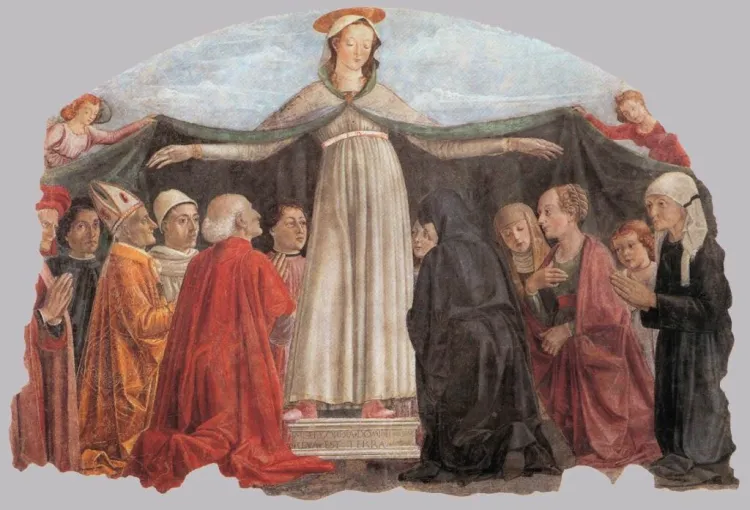4 June 2024: Legion Handbook Chapter 33.6 - 33.7
- nuslegionofmary
- Jun 6, 2024
- 3 min read
33.6 The Daily Recitation of the Catena Legionis
The praying of the Catena is highly obligatory to legionaries, so much so that weekly meetings ask that we are to report on how faithful we have been in reciting it.
The reason importance lies not so much in saying some kind of “official legion prayer”, but in what it is: daily meditation of the Magnificat so that we grow to imitate the dispositions of Our Lady as. “My spirit rejoices in God my saviour. He looks on His servant in her lowliness, henceforth all ages will call me blessed.” We are merely servants while God is the saviour. Truly praying these words allows their meaning to penetrate our hearts: that we mere creatures who should humbly depend on Him.
“As the name implies, this is… the link… the bond which unites them to one another and to their Blessed Mother” . The bond which the Catena creates is one of charity. Christ commands that we love one another (cf. Jn 13:34) and its first expression is in prayer.
33.7 The Relations between members
It would be difficult to say that Frank Duff arbitrarily placed this point here after treating on the daily recitation of the Catena. The way we relate to each other is the concrete manifestation of and opportunity to practice what the Catena prays for: the grace of union and charity.
This is certainly not easy, which is why we are warned about “petty jealousies” and envies that can occur in a praesidium. We should not be surprised that even in the Church, in the Legion, such things happen. Because of original sin, our nature is fallen. Where there are human beings there will be human problems.
In dealing with them, the handbook counsels us to have “an attitude of kindness towards seeming shortcomings” . Note: Sometimes a shortcoming of another could simply be our own flawed perception and not the truth.
For this reason, we should always remain focused. Membership in the Legion is independent of whether or not we like the others. We are here for Our Lady, which means that we must constantly keep in mind that the Legion’s “primary object [is] the making of its members holy” (Handbook, 12.1). Difficult people grant us many opportunities to grow in the virtues of patience, charity, and fortitude.
This focus allows us to understand correctly what appears to be a shocking line in this section: “Self-suppression must be the basis of all work in common” . This does not mean self-denigration/devaluation but suppressing anything which might compromise the common goal of sanctification & the apostolate. This is especially important in projects/events that a praesidium is planning, where often we believe that our suggestions and plans are better than others’.
Egoistic absorption must be overcome so that we can truly love the other. This allows us to considering him/her as “another self”. This means that their joys and sorrows are taken to be ours as well. In any successful event/apostolate envy will give way to gladness because each person recognises that glory is rendered unto God.
In both the life of grace (ie. in our prayers, including the Catena) and our relations with other Legionaries, the words of St John the Baptist are most fitting. “He must increase and I must decrease” . We ought to rid ourselves of selfishness so that our hearts become wide enough to love God and others. Only then can we fulfill the purpose of why we entered the Legion: for our sanctification and for the edification of our neighbour through the apostolate.











Comments